
The Yoro Biological Corridor (YBC) is a unique example of a multi-disciplinary program that’s designed to enable local communities work together and improve living conditions via stable green employment; With a special emphasis on women, youth training & forest conservation.
The Yoro Corridor Community:
Green Employment
Yoro Biological Corridor supports existing jobs and creates additional green employment via the Yoro Model:
Communities of small family coffee farms already growing coffee in the region are working together to preserve their ecosystem, and are supported by the Yoro Model with fair, stable and transparent prices for their coffee beans in addition to voluntary carbon sequestration payments.
Local scientists, agronomists, biologists and doctoral degree students are employed for ongoing research, including fieldwork.
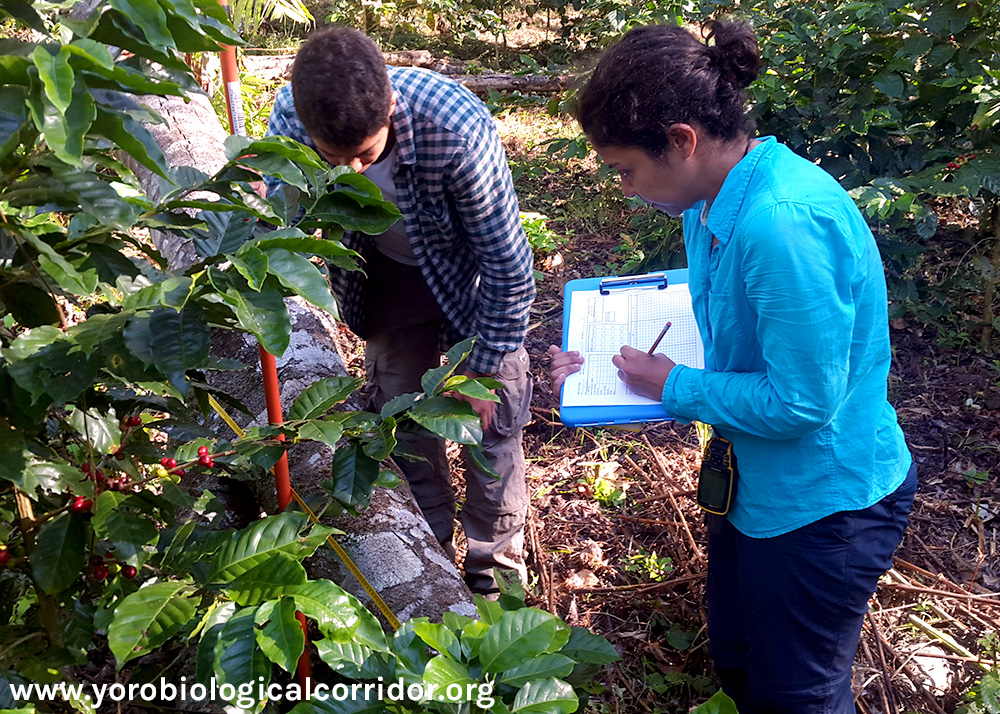
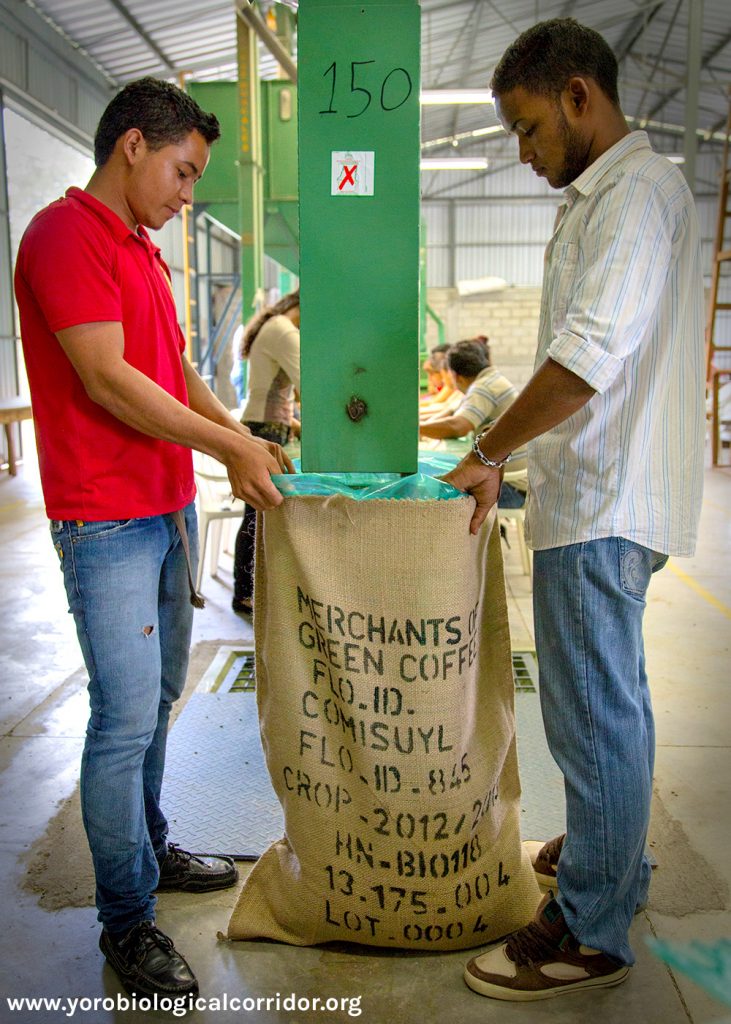
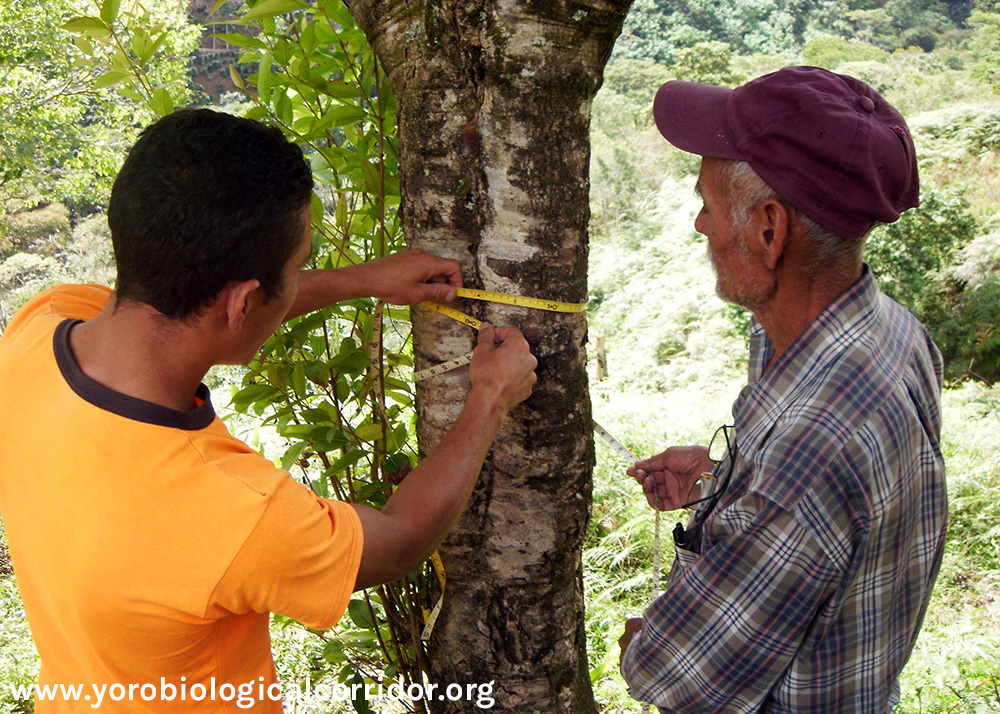
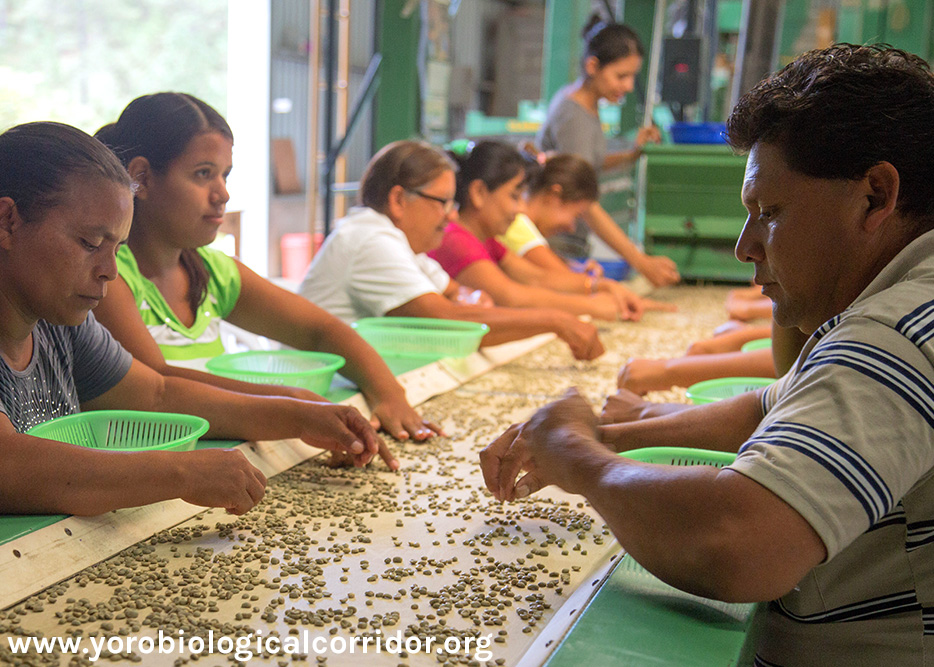
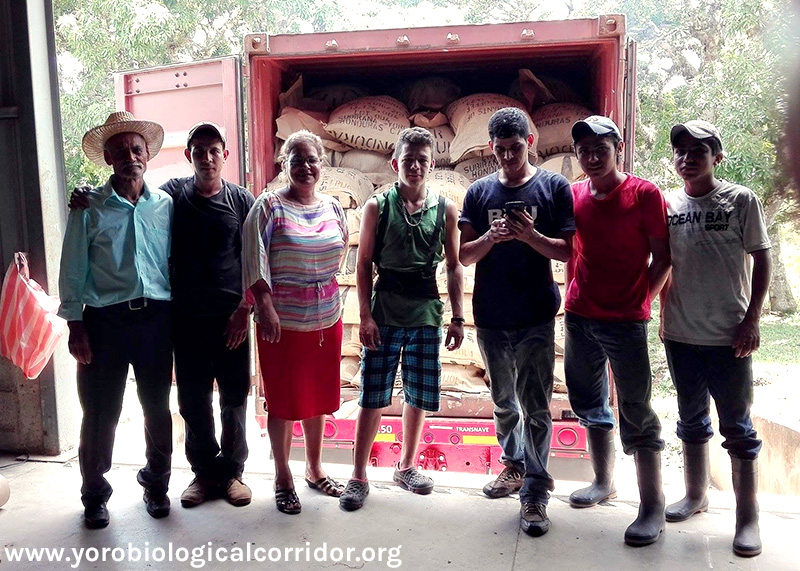
October 2012: First direct export of Subirana coffee farmers in 100 years of coffee production. February 2013: Trade partnership formed between Subirana coffee producers and local biofuel producers.
Youth Engagement
Yoro Biological Corridor currently engages youth at the post-secondary level, providing training for conservation programs that lead to university doctoral degrees. Once graduated, students are hired to work in the corridor long-term. (Stable and diversified employment of this nature can be used to address current migration concerns throughout the region).
Gender Equality
Community leader and manager of the carbon-neutral coffee processing factory, Maira Manzanares, is an example of a third-generation coffee grower that has challenged existing gender boundaries in an effort to help her community. Her goal is to provide the people in her community with good jobs (where there are few to none); And she supports other women in management positions (almost all of which are typically filled by men).
2003: Cooperativa COMISUYL (the original cooperative founded by Manzanares) receives the first ever UN-backed Gender Equality Certification.
Ecosystem Regeneration
Communities of small family coffee farms already growing coffee in the region are incentivized to work together to preserve their ecosystem, via Integrated Open Canopy™ (IOC™) coffee farming and carbon-neutral coffee processing.
As co-managers of Pico Pijol and Montaña de Yoro National Parks, partners behind the Yoro Model, are also actively engaged the ‘Jacagua Watershed Project’; A multi-disciplinary partnership to secure the region’s main source of drinking water and hydroelectric power.
Progressive Policies
For the first time in history, the Yoro Model, (which is in line with the Paris Agreement and designed to meet the original UN Millenium Development Goals) allows local mayors, banks and institutions to collaborate in securing the future of the region from climate disaster. This includes the use of the Kyoto Protocol Article 17 that establishes an international trade mechanism for carbon reduction trade. Moreover, the initiative involves communities at various levels working together to usher in progressive environmental policy by enacting a unique Honduran forest corridor law.
December 2020: 30 local mayors meeting for official establishment of Yoro Biological Corridor. Feb-March 2022: Collection of more than 10 signed regional mayor support letters.
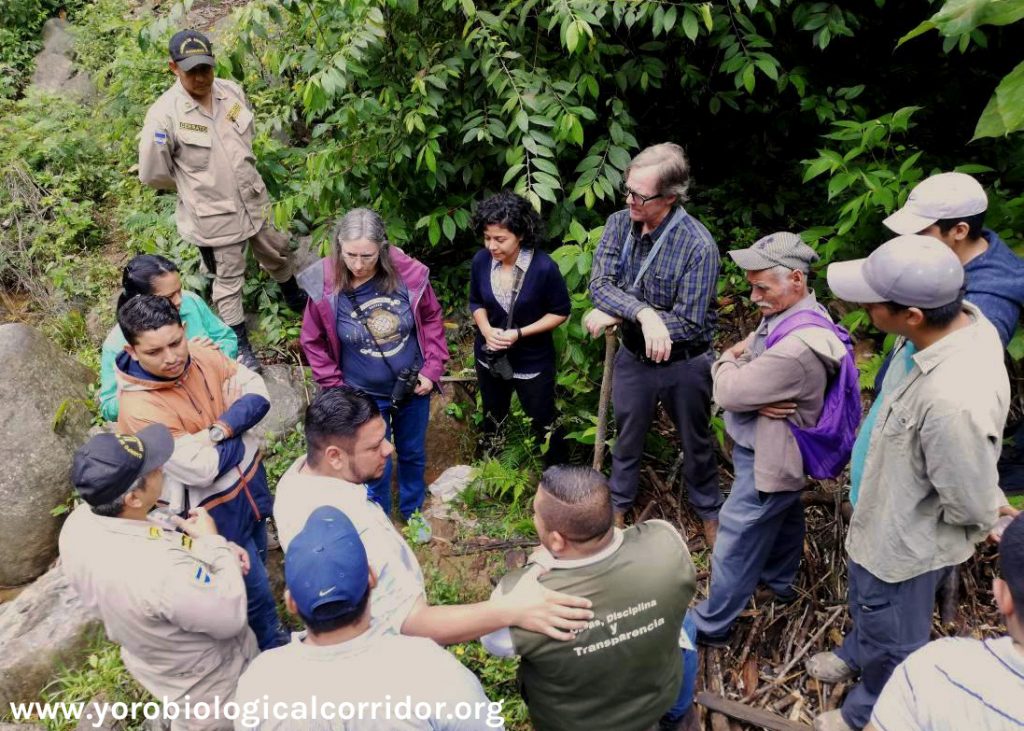
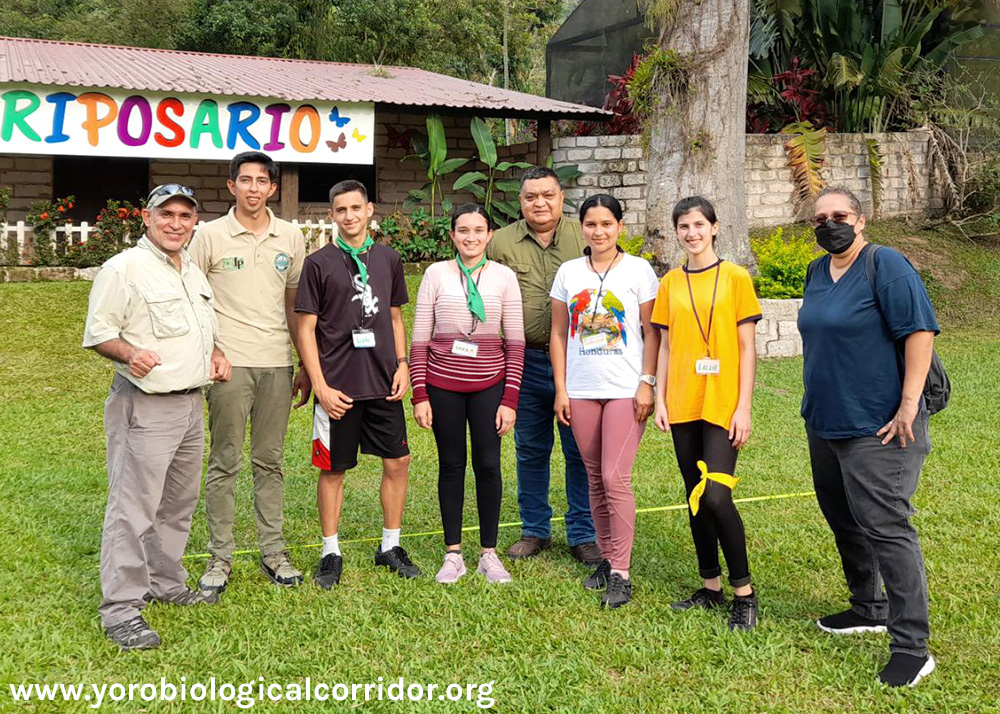
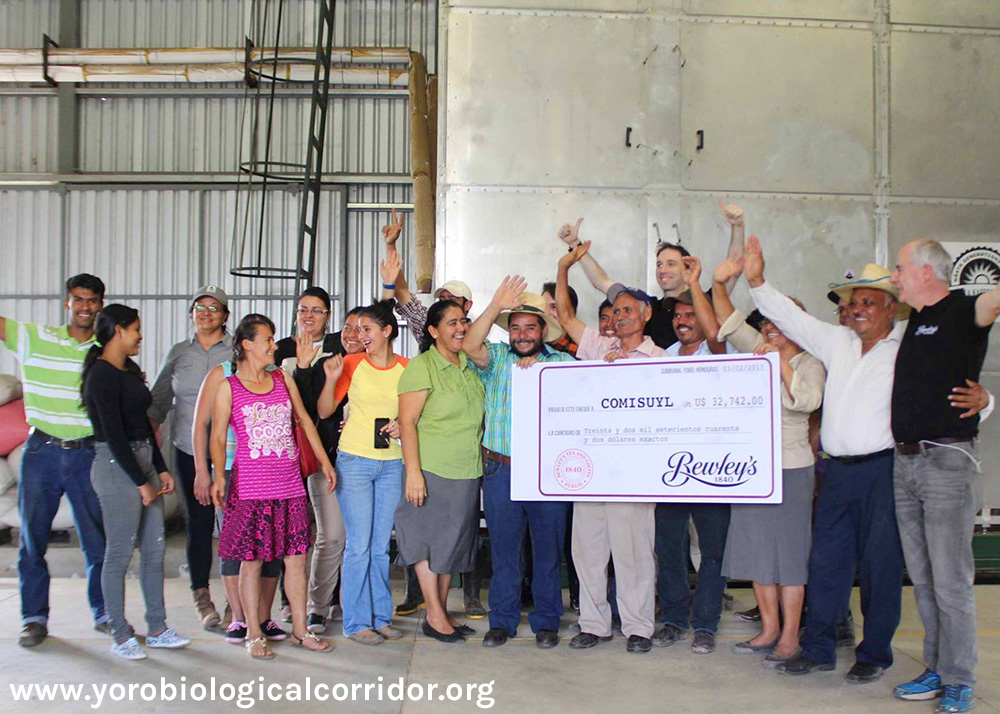
On-the-Ground Community Engagement via Mesoamerican Development Institute (MDI)
As co-managers of Pico Pijol and Montaña de Yoro National Parks, Mesoamerican Development Institute (MDI) engages in commercial transactions directly with small producers for purchases of coffee and carbon credits.
The organization also collaborates with coffee producers to study IOC™ in the field and to refine the IOC™ protocols based on field data an input from producers; Maintaining over 100 long-term study sites on coffee farms where carbon in IOC™ forest habitat can be measured along with its impact on reducing the spread of leaf rust, increasing pollination, increased pest control (through birds), and contribution to biodiversity and water quality.
In addition to the outreach and collaboration with coffee producers, cooperatives and producer organizations, MDI meets regularly with the waterboards of the coffee producing communities, and municipalities struggling with declining water resources due to rampant deforestation at the headwaters associated with expanding coffee production. As park co-managers and proponent of the Yoro Biological Corridor, MDI provides workshops and presentations for the mayors and local officials to discuss the major challenges and potential for the Yoro Biological Corridor designation to harness resources for scaling up sustainability in these watersheds of national significance.